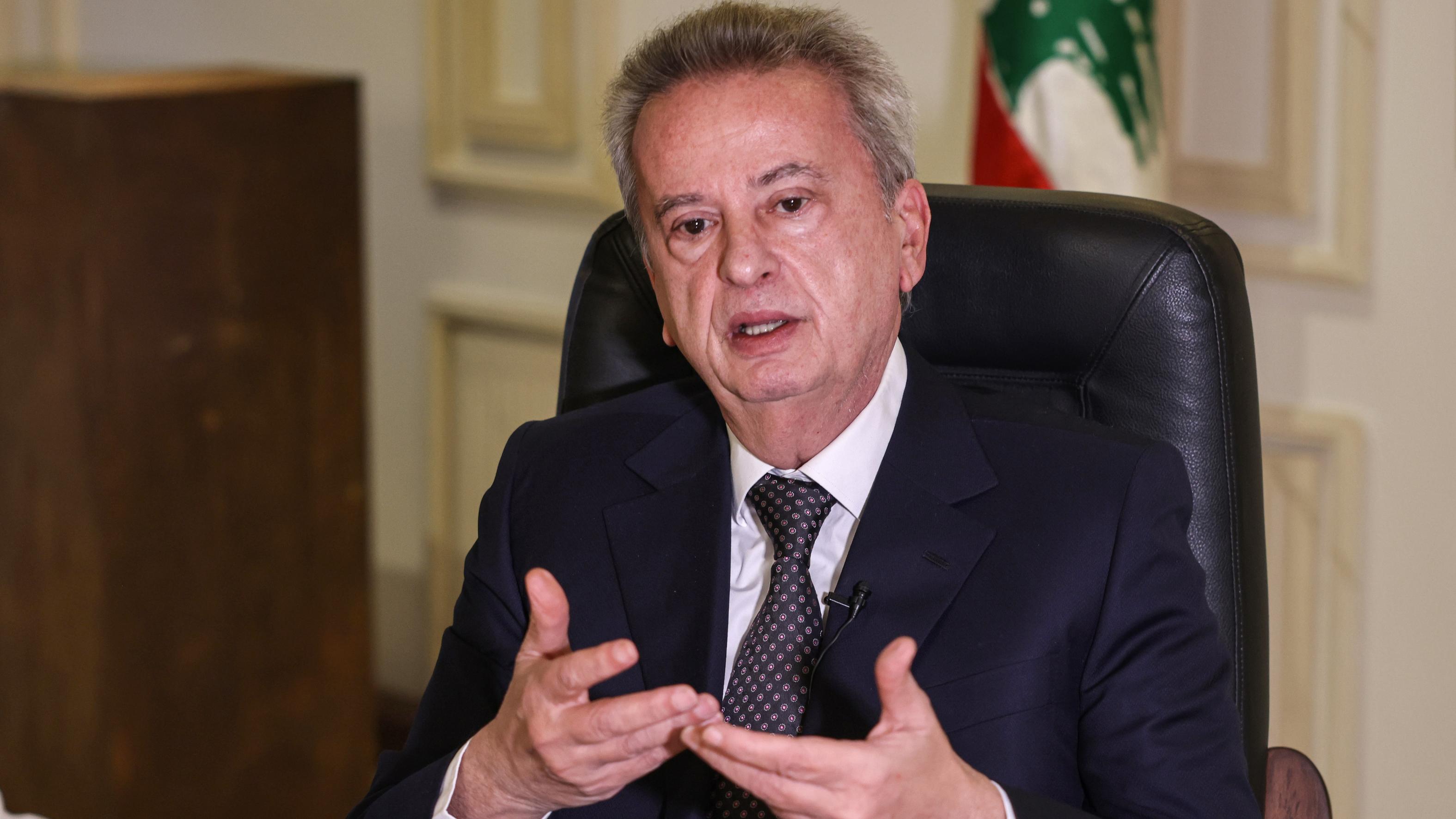 Lebanon's Central Bank Governor Riad Salameh gives an interview with AFP at his office in the capital Beirut on December 20, 2021. (PHOTO / AFP)
Lebanon's Central Bank Governor Riad Salameh gives an interview with AFP at his office in the capital Beirut on December 20, 2021. (PHOTO / AFP)
BEIRUT - Lebanese Deputy Prime Minister Saade Chami on Thursday called for the resignation of Central Bank Governor Riad Salameh who is facing money laundering and corruption accusations.
"The central bank is one of the state's most important institutions, and it is not acceptable for its governor to be accused of money laundering," Chami was quoted as saying by the Elnashra news website, calling for his resignation.
Salameh is being investigated, along with his brother Raja, in Lebanon and abroad over the alleged embezzlement of more than $330 million from the Lebanese central bank
Chami said Lebanon needs a credible and transparent ruler for the central bank, noting that the central bank has no right to intervene in financing the country's public sector.
However, some ministers were against the step-down of Salameh for fear of the consequences it might have on Lebanon and its financial relations abroad.
ALSO READ: Lebanon central bank chief's brother skips fraud probe
Salameh is among the top Lebanese officials blamed for the unprecedented financial crisis in Lebanon. He is being investigated, along with his brother Raja, in Lebanon and abroad over the alleged embezzlement of more than $330 million from the Lebanese central bank.
Salameh has repeatedly denied the accusations, insisting that his wealth comes from his previous job as an investment banker at Merrill Lynch, inherited properties, and investments.
On May 19, Lebanon received an International Criminal Police Organization (Interpol) notice for Salameh over corruption charges, following an arrest warrant released by a French judge as part of the investigation into his public funds embezzlement.
READ MORE: French prosecutors: Lebanon central bank chief hid fraud
Lebanon has been suffering from an unprecedented financial crisis amid a shortage of foreign reserves, with the Lebanese pound losing as much as 98 percent in value since late 2019.


